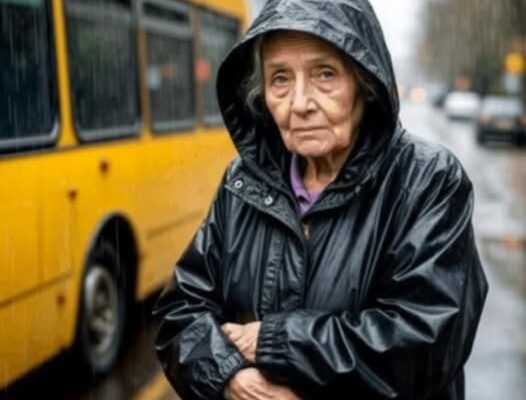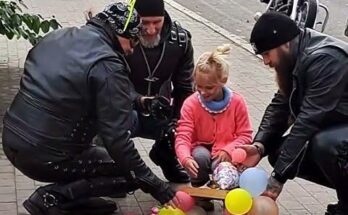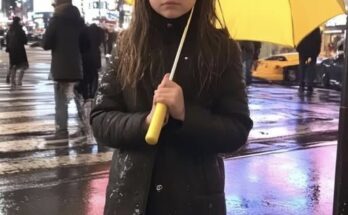The Woman With the Grocery Bag
The bus rolled to a stop in the gray afternoon. Wet snow drifted outside, and only a few passengers sat quietly in the nearly empty seats.
An older woman boarded slowly, wearing a worn coat and holding a grocery bag in one hand, the other clutching the handrail for support.
The driver glanced at her, then said curtly,
“Madam, do you have a ticket?”
She didn’t answer right away. Just stood there, steadying herself against the motion of the bus.
He repeated, a little more firmly,
“You need a ticket to ride. Please step off the bus.”
The passengers stayed silent. A young woman near the window looked down. A man in a dark coat shifted uncomfortably but said nothing.
The elderly woman moved toward the door with slow, careful steps. As she reached the exit, she turned back to the driver.
In a calm, quiet voice, she said:
“I once raised people like you—with kindness. And now I can’t even sit down.”
She stepped off into the snow.
The doors remained open for a long moment. The driver sat still, his expression unreadable. No one spoke. A few passengers quietly gathered their things and exited the bus.
By the time it pulled away again, only the driver remained.
That night, he couldn’t sleep. He kept replaying the moment in his mind—her voice, her expression, the dignity in her words.
The next day, he looked for her at every stop. Days passed. Nothing.
Then, a week later, as his route neared the old market, he saw her again.
Same coat. Same grocery bag.
He stopped the bus and stepped out.
“Ma’am… I want to apologize. I didn’t treat you fairly that day.”
She looked up at him, then offered a small smile.
“Life’s too short for grudges,” she said gently.
“But I can’t accept apologies from strangers. What’s your name?”
“Doru,” he said.
“And you?”
“Elisabeta. My friends call me Bia.”
He nodded, and she nodded back toward the bus.
“Well, Doru, are you going to keep your passengers waiting?”
The bus was empty, but he smiled and said,
“Ride with me to the depot? No charge.”
She accepted his arm, and they boarded together.
As they rode, she looked out the window and said softly:
“I used to take this route every week to visit my husband when he worked nights. After he passed, I kept riding. A few months ago, someone stole my purse. I haven’t replaced my pass.”
Doru felt a lump in his throat.
“Why didn’t you ask someone for help that day?”
She smiled.
“Sometimes pride is harder to carry than a bag of groceries.”
When they reached the depot, he made her a promise.
“Let me get you a new pass. And maybe do something more.”
The next morning, Doru taped a simple flyer to the drivers’ bulletin board:
“Silver Seat Saturdays:
Route 7, 10 a.m. Seniors ride free.
Let’s offer a smile, a seat, and a safe trip.”
Seven drivers signed up that week. They pooled spare change to cover fares. Word spread. A local bakery donated pastries. Volunteers came to help. One Saturday, a radio host rode along to tell the story.
Bia was interviewed live.
“I’m just a grandmother with tired feet,” she said with a gentle laugh.
“But tired feet still deserve kindness.”
The story reached city hall. The transportation department made the program official—one day a week, all seniors ride free, supported by sponsors. Doru was asked to help lead the initiative.
A year later, on the anniversary of the first Silver Seat Saturday, Bia stood at a podium during a public ceremony.
Her voice was steady:
“Kindness starts with one small gesture. One person. One day. That’s all it takes.”
The applause was loud, but Doru only looked at her—the woman who’d changed his life with a few quiet words.



